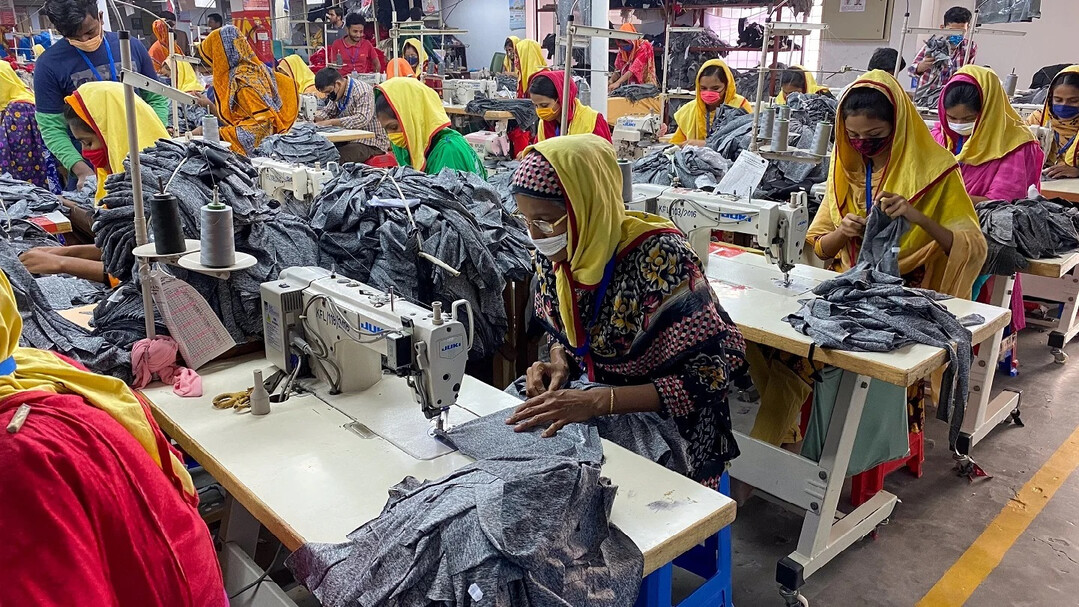
Dhaka, Bangladesh – Bangladesh's garment industry, a cornerstone of the nation's economy, is undergoing a significant transformation with the increasing adoption of "smart manufacturing" technologies. While these advancements promise to enhance productivity and maintain global competitiveness, they also raise concerns about job displacement, worker well-being, and the changing dynamics of the workforce.
The Rise of Smart Manufacturing
Garment factories in Bangladesh, supplying major global brands like H&M and Zara, are implementing various technologies to streamline production. These include:
Nidle: An internet-connected device that monitors individual worker output and efficiency. Sensors track the number of pieces sewn per hour and idle time. The system provides real-time feedback to workers and supervisors, with targets and performance indicators displayed on screens attached to sewing machines.
Semi-automated machines: These machines automate specific tasks such as attaching buttons, pockets, or performing intricate stitching, requiring less human intervention.
Fully robotic devices: While less prevalent, some factories are incorporating fully robotic systems for certain processes, further reducing the need for manual labor.
This shift is driven by several factors, including:
Rising labor costs: As Bangladesh's economy develops and per capita income increases, workers are demanding higher wages. Automation is seen as a way to mitigate rising labor costs and maintain competitiveness.
Increased efficiency and speed: Smart manufacturing technologies enable factories to produce garments more quickly and efficiently, meeting the demands of the fast-fashion industry.
Global competition: Facing competition from other garment-producing nations, Bangladeshi factories are investing in automation to stay ahead and attract orders from international buyers.
Impact on Workers
While factory owners and industry associations emphasize the positive impacts of automation, workers, union representatives, and academics have raised concerns:
Job displacement: Automation is leading to job losses, particularly for women who traditionally dominate the garment workforce. Reports indicate a significant decrease in the proportion of female garment workers in recent decades.
Increased pressure and stress: The use of monitoring devices like Nidle and the need to keep pace with semi-automated machines are increasing pressure and stress on workers. Workers report feeling constantly monitored, facing higher production targets, and experiencing negative impacts on their health.
Wage stagnation: While productivity has increased, workers and union leaders argue that wage increases have been primarily driven by worker protests and government-mandated minimum wage adjustments, rather than the benefits of automation.
Gender disparity: Automation may disproportionately affect women, who often face challenges in accessing training for new technologies and balancing work with family responsibilities. This can lead to further job displacement and limited opportunities for career advancement.
Industry Perspectives
Factory owners: Factory owners argue that automation is essential for survival in a competitive global market. They believe that increased productivity leads to better salaries and more opportunities for workers in the long run. They also highlight that international buyers prefer factories with advanced technology.
Industry associations: Industry associations acknowledge the need to address the concerns of workers and ensure a fair transition to automation. They emphasize the importance of training and upskilling programs to help workers adapt to the changing landscape.
Labor unions: Labor unions are calling for a more worker-centric approach to automation. They advocate for fair wages, improved working conditions, job security, and the right to collective bargaining. They also emphasize the need for social protection measures to support workers who are displaced by technology.
The Path Forward
The future of Bangladesh's garment industry hinges on finding a balance between technological advancement and the well-being of its workforce. Key considerations include:
Investing in worker training and upskilling: Providing workers with the skills and knowledge needed to operate and maintain new technologies is crucial for ensuring a smooth transition and creating new job opportunities.
Ensuring fair wages and working conditions: Workers should benefit from the increased productivity resulting from automation. This includes fair wages, safe working conditions, and reasonable workloads.
Promoting social dialogue: Open and constructive dialogue between factory owners, workers, unions, and the government is essential for addressing concerns and finding solutions that benefit all stakeholders.
Developing social safety nets: Implementing social safety nets, such as unemployment benefits and retraining programs, can help support workers who are displaced by automation.
Responsible sourcing: International brands have a responsibility to ensure that the factories they work with are implementing automation in a way that respects workers' rights and promotes sustainable development.
Bangladesh's garment industry stands at a critical juncture. By embracing responsible automation and prioritizing the well-being of its workforce, the industry can continue to thrive while ensuring a more equitable and sustainable future.
[Copyright (c) Global Economic Times. All Rights Reserved.]






























